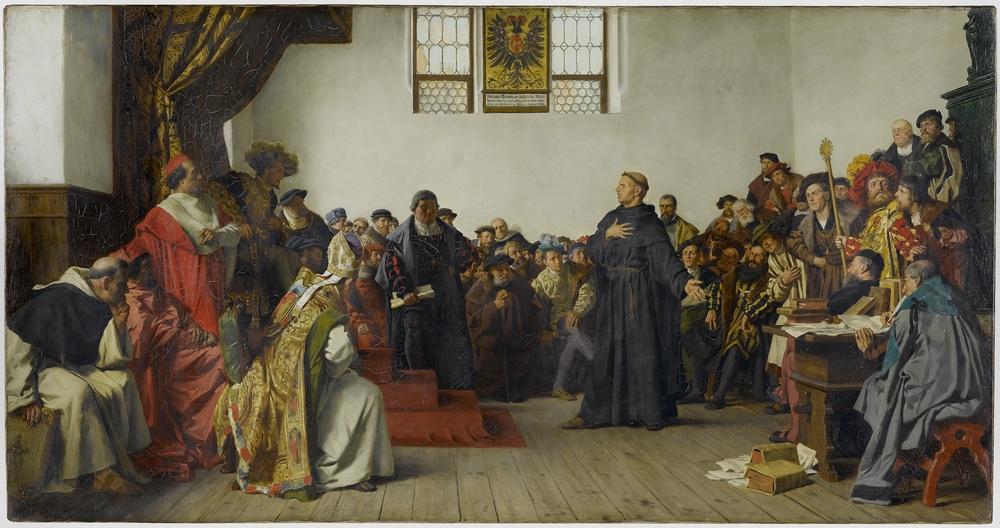
Seth Udinski, FISM News
[elfsight_social_share_buttons id=”1″]
On October 31, 1517, 504 years ago, the German monk Martin Luther nailed his 95 Theses to the castle church door in Wittenberg, Germany.
Luther’s 95 Theses highlighted numerous theological complaints against the Roman Catholic Church, including the rampant sale of indulgences. At this time, the church espoused that sinners could purchase their way into heaven with the sale of an induglence and shave off years of time spent in purgatory. Luther rightly perceived the sinister way in which this belief undercut the gospel of grace, given as a gift to sinners who put their faith in Jesus Christ alone for the forgiveness of sins.
Luther’s words spread throughout Europe quickly thanks to the newly invented printing press. The Church declared Luther a heretic, but the former monk survived his death sentence and blessed the believers in his age and in the ages to come with numerous sermons and works, including his German translation of the New Testament. He died in 1546 after a faithful life of ministry and a fruitful marriage at the age of 62.
This belief of justification by grace alone through faith alone was the driving force of the Reformation. At this point in European history, the Church had sadly fallen woefully short of faithfully representing Christ in the world. The Reformation was, in so many ways, a return to the foundations of biblical truth and gospel grace.
The verse that fueled Luther’s trust in God alone for salvation was Romans 1:16-17, mighty words from the Apostle Paul that still ring true today. May these words encourage you in your faith and remind you of your salvation in Jesus Christ, given to you as a gift.
For I am not ashamed of the gospel, for it is the power of God for salvation to everyone who believes, to the Jew first and also to the Greek. For in it the righteousness of God is revealed from faith for faith, as it is written, “The righteous shall live by faith.“
